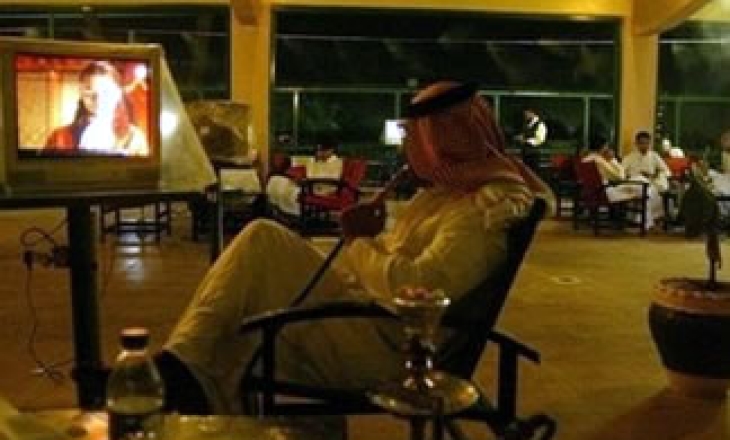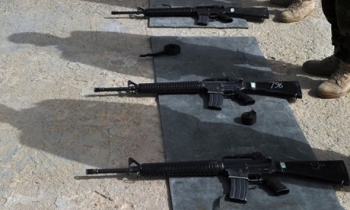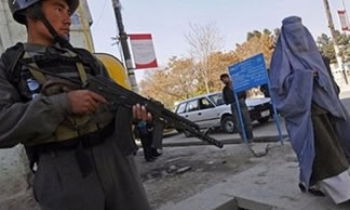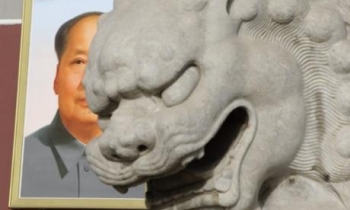A top Saudi cleric has issued an edict saying writers who challenge or criticise religious sheikhs should be fired from their jobs, flogged, and jailed. This comes close on the heels of another top cleric calling for the death of owners of satellite TV stations that air “immoral” soap operas.
Sheikh Abdallah Ben Jabreen, a former member of the Saudi Arabia’s Establishment of Fatwas, told Al-Majd TV, a privately owned channel in Saudi Arabia, that journalists who criticise religious figures should be punished, the New York-based Committee to Protect Journalists (CPJ) reported.
Ben Jabreen’s fatwa came in support of an edict issued last week by Sheikh Saleh al-Lihedan, who called for the deaths of owners of television channels that broadcast “immoral” programs. In a statement, CPJ expressed concern about al-Lihedan’s fatwa.
“Those (writers) and journalists and satellite TVs who attack scholars, and particularly well-known sheikhs, and publish bad bulletins about them—they must be punished … even by lengthy imprisonment …or by dismissing them from their jobs, and flogging and rebuking,” Egyptian independent daily, Al-Masry al-youm, quoted Jabreen as saying during the broadcast.
Al-Lihedan’s fatwa was met with a wave of other criticism from journalists, writers, and human rights groups.
“We fear for the safety of journalists and writers in the Middle East when senior religious figures issue calls for the imprisonment and flogging of their critics,” said CPJ Deputy Director Robert Mahoney. “The Saudi authorities must take a stand against such sinister edicts and ensure that journalists are protected.”
Arabs across the ideological spectrum, from secular-minded liberals to Muslim hard-liners, denounced the edict, according to an Associated Press (AP) report. Many expressed worry the recent comments by al-Lihedan — chief of the kingdom's highest tribunal, the Supreme Judiciary Council — would fuel terrorism, encouraging attacks on station employees and owners.
Ben Jabreen’s fatwa was the third issued by Saudi religious scholars this year against journalists, CPJ research shows. In March 2008, Sheikh Abdul-Rahman al-Barrak called for the trial of two writers for their “heretical articles” and urged their death if they did not repent.
“From Nigeria to Pakistan, and via Saudi Arabia, many journalists have been targeted by religious officials in recent years after writing articles or broadcasting programmes viewed as blasphemous and anti-Islamic," Paris-based Reporters sans Frontières (RSF) said.
“These fatwas constitute calls for murder that endanger the lives of journalists who are already working in conditions made more difficult by the delicate political context in which they have to operate. We urge religious officials to show moderation so that no irreparable steps are taken. The highest Islamic authorities should publicly condemn such fatwas," it added.
In the past, fatwas have led to assassination attempts, CPJ said.. Farag Foda, an Egyptian writer, was assassinated in 1992, while Naguib Mahfouz, the acclaimed Egyptian Nobel Literature Prize winner, survived an assassination attempt in 1994.
According to RSF, fatwas against journalists have become increasingly common in recent years. Two journalists were targeted by fatwas in 2003 after they condemned the backward nature of Islam practised in Afghanistan. An Iranian ayatollah called for two Azerbaijani journalists to be killed in December 2006 after they wrote an article about the superiority of European values.
More recently, a Pakistani religious leader declared a fatwa in June 2007 against the editorial staff of fashion magazine Octane, based on a series of photos headlined “Adam and Eve, the apple of discord". On the other hand, a fatwa issued by the Popular Resistance Committees, one of the highest religious authorities in the Palestinian territories, brought forward the release in 2007 of British journalist Alan Johnston, who was held hostage in the Gaza Strip.










